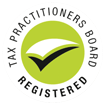Every year the ATO publish small business benchmarks that outline how a typical business performs in each industry. If your business falls outside of the benchmarks the ATO sets, they are likely to take a closer look.
If you find your business does fall out of the usual range, you may be asked by the ATO to evidence your income and expenses and the nexus (relative connection) between the expenses and your business activities. If you cannot supply satisfactory proof as to why your income and expenses, the ATO can issue a default or amended assessment to revise your assessable income.
Examples of ratios the ATO look at include:
- cost of sales to turnover (excluding labour)
- total expenses to turnover
- rent to turnover
- labour to turnover
- motor vehicle expenses to turnover
- non-capital purchases to total sales, and
- GST-free sales to total sales.
Aside from appeasing the ATO, benchmarking is an invaluable way to assess how your business is operating. Measuring key performance indicators against other businesses in your industry can really help you future proof your business.
If your business does fall below the industry standards, be prepared to take a look at your pricing, processes, staffing or other areas of your business to address costs and productivity.
For example, look at:
- Rent costs on premises
- Leasing costs for machinery, vehicles etc.
- Staff levels and costing
- Productivity levels
- Product/service costing
- General running expenses
- Business processes
These are all things that can be addressed in some way. For instance, consider renegotiating rents and leases. Can you automate more processes to save time and money? Can you get a better deal on running costs and suppliers? Also, how do your prices measure up against you competitors?
Benchmarking can also identify new opportunities for making your business more competitive. Plus it can help you to forecast the impact of changes in your industry so you are better prepared should they eventuate.
When you have adjusted your business ratios in line with industry standards, regularly re-visit them to keep your business healthy. Benchmarking is an ongoing process.
Benchmarking tips (source: Business Queensland)
- Think creatively about ways to improve your business
- Ask staff for their input
- Study other, similar, businesses and how their processes work
- Implement changes based on observations and research
- Evaluate the results of the changes you have implemented
- Review whether you have the business skills to improve your business
How do you find out what the benchmarks are for your business?
To see how your business compares to competitors, ask your industry association to provide information on industry standards to measure against.
Alternatively, you can use the business performance check tool provided by the ATO. You can enter your details and it compares your data against the ATO benchmarks for that year. Download the ATO tool here.
 Tax Agent
Tax Agent



